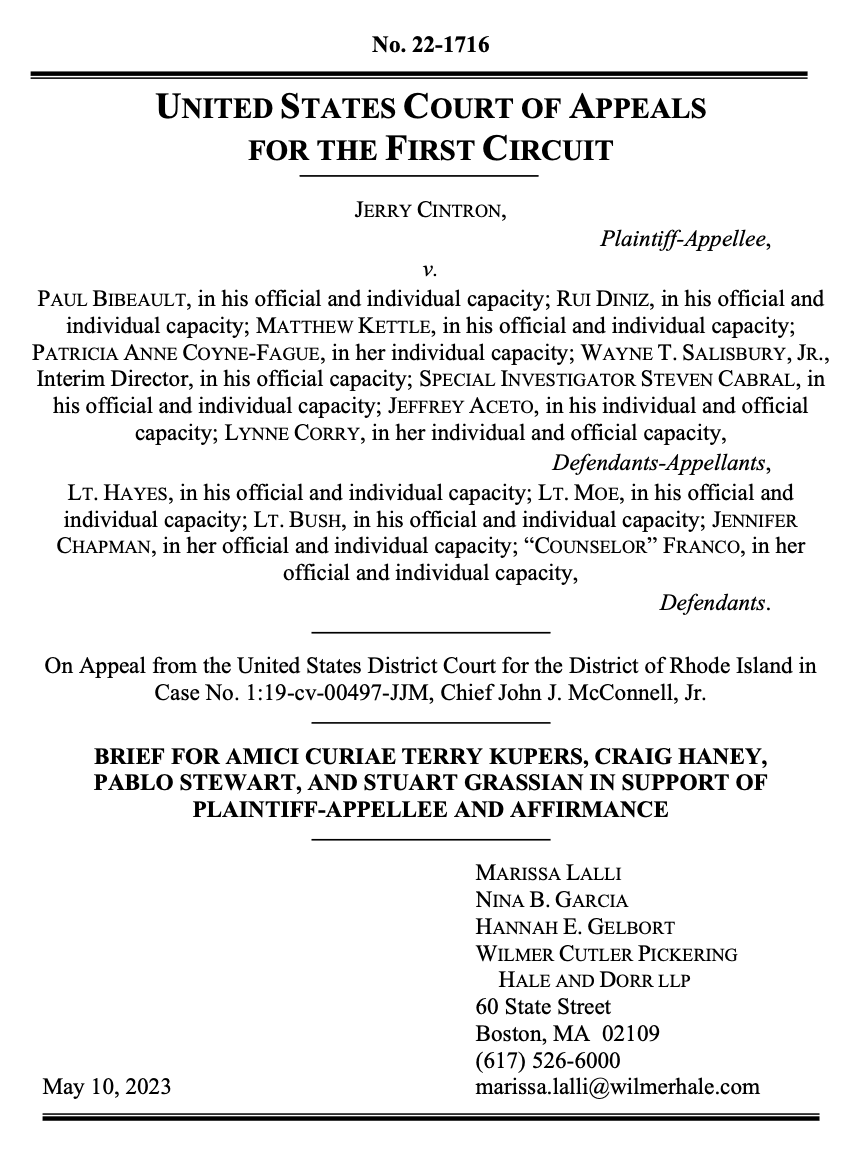
Summary of Argument
Amici Curiae are professors and practitioners of psychiatry and psychology with extensive experience studying the psychological and physiological effects of imprisonment and/or treating individuals who are in penal confinement, including solitary confinement. Based on their research and assessment of the professional literature, amici curiae have concluded that any amount of solitary confinement which deprives a prisoner of two basic human needs— social contact and adequate positive environmental stimulation—can cause grave damage to that prisoner’s mental and physical health. The damage can be exacerbated when the period of isolation is lengthy. Indeed, this damage has long been recognized by experts and society at large.
Psychologists and psychiatrists agree that solitary confinement can have disastrous psychological and physical consequences for prisoners who are confined to a small cell without meaningful social interaction or positive environmental stimulation. The dangerous effects of solitary confinement are particularly grievous for prisoners like Appellee Jerry Cintron, who suffer from opioid addiction and are forced to spend extended periods in solitary confinement.